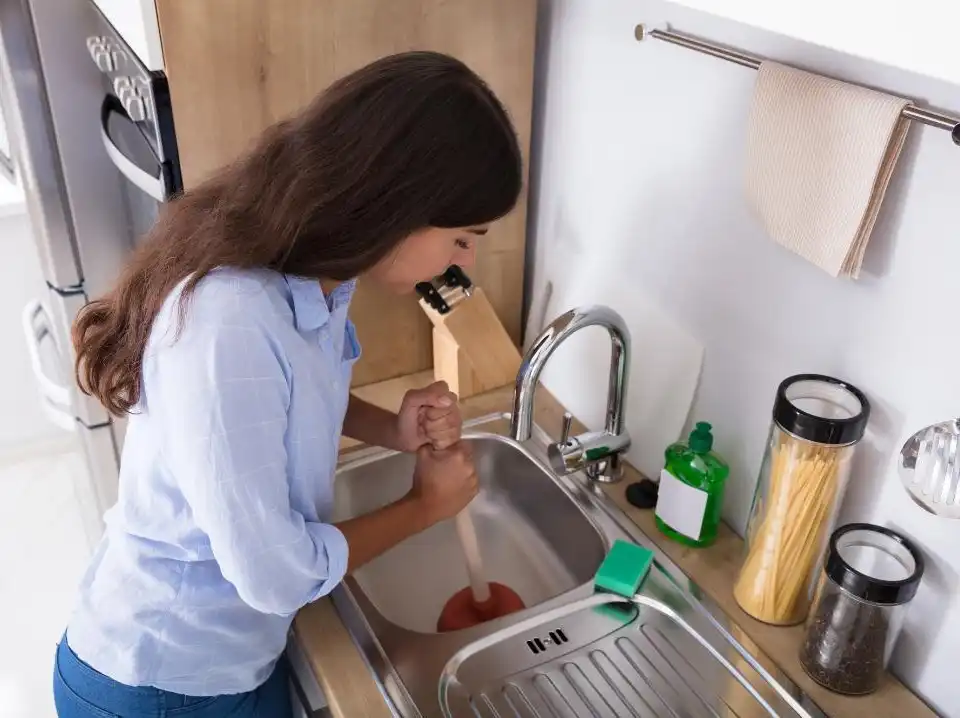NEWS
The Causes And Fixes Of Smelly Drains

Smelly drains are among the most common issues in a home. However, sometimes, they can cause discomfort as the odor can be very unpleasant. Also, smelly drains can be highly risky and detrimental to your health. They may contain toxic gases like methane and hydrogen peroxide that, when inhaled in high concentrations, can lead to shortness of breath, unconsciousness, headache, and irritation of the eyes.
Generally, a stinky drain is an indication that there’s an issue with your drainage. But knowing why this happens in the first place and their possible solutions can help you restore comfort in your home. This article outlines the causes and fixes of smelly drains. Chect out for details on A-1 Certified Environmental Services.
- Venting Problems
The role of vent pipes in your home is to prevent sewer gases from coming in and driving odors and gases away. Also, they control the air pressure in your pipes and the entire plumbing system. Ideally, vent pipes are vertical pipes that run through your home’s roof and are connected to the drain lines. When these pipes are blocked, they inhibit the sewer gasses from passing through, allowing them to seep into your home.
To fix venting problems:
- Climb your roof
- Use a plumber’s snake or garden hose to break the clog and flush the debris.
- Have somebody flush the toilet as you place your hand above the vent. A suction indicates that you unblocked your vent.
If these procedures don’t work, hire a reputable local plumber in the Blue Mountains or other service providers. These experts will help you solve this issue and save you from falling, especially if your roof is steep.
- Organic Build-Up
The most common cause of smelly drains in your home is organic build-up from objects and elements like trapped food, hair, grease, soap, etc. These objects get down your sink, blocking your drain or making it run slowly. For instance, food fragments can slip down the drain no matter how careful you’re not to wash them down. These particles may be stuck, decompose and cause a foul smell. On the other hand, grease can clog pipes, accumulating sediments that result in a stinky smell.
To fix this issue, pour boiling water down the drain. However, if the smell persists, add some baking powder and wait for some minutes, then add a cup of vinegar, followed by hot water.
- A Dry P-Trap
The primary goal of a P-trap is to trap toxic sewer gases in the wastewater system, preventing them from re-entering your home. When you run water through your sink, it flushes to the drain line via the trap. But, if you close your faucet, some water remains within the bend at the base of the P-trap. This water serves as a barrier, sealing the pipes so the stinking gases won’t escape.
However, when you don’t use your sink for an extended period, the water in the trap evaporates and dries up. It allows gases to enter your home and causes smelly drains. To fix this issue, ensure you occasionally run water down your drain to prevent the P-trap from drying up. Also, this flushes out water in the trap that can get nasty and smelly with time.
Another major cause of P-trap drying up is a blocked plumbing vent. If your vent is clogged and no air gets in, the pressure from flushing your toilet can draw out all the water in the trap. Pouring water down the sink can help fill the trap. However, the pressure will suck up the water in some or all of your P-traps every time you use your toilet. Therefore, consider hiring a plumber to check and fix your vent for a permanent solution.
- Smell From The Sump
Sometimes, a foul odor can originate from your basement sump pump. The cause of this is directing more wastewater to your sump pump rather than the significant sewer drain line. For example, draining water from your washing machine to the sump can accumulate over time, resulting in smelly drains. Therefore, minimize the water you direct to your sump pump to lower the smell.
- Partial Blockages
Another popular cause of stinky drains is partial blockages. It results from a non-decomposable object flushed down the drain, hindering its typical functioning. It causes waste to collect around the product, decompose and cause a bad smell. To solve this issue, pour hot water down the drain. However, if the object doesn’t move down, enlist the help of a professional to cut the pipe, remove the product, and fix it.
Conclusion
Smelly drains aren’t a good thing to encounter in your home. They make it hard to live there and even cause serious health issues. The good thing is that you can quickly fix or prevent some problems. You can avoid organic build-up by not washing food particles down the sink. However, some issues may be hard to fix. In this case, get a professional plumbing service for secure and long-lasting solutions and restore the comfort of your home.
Kenneth is a proud native of sydney, born and raised there. However, he pursued his education abroad and studied in Australia. Kenneth has worked as a journalist for almost a decade, making valuable contributions to prominent publications such as Yahoo News and The Verge. Currently, he serves as a journalist for The Hear Up, where he focuses on covering climate and science news. You can reach Kenneth at [email protected].










